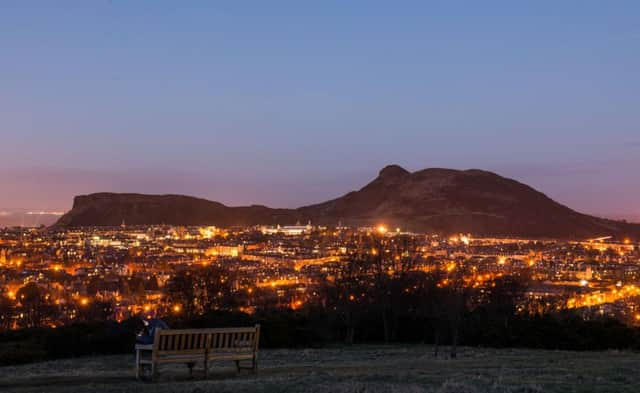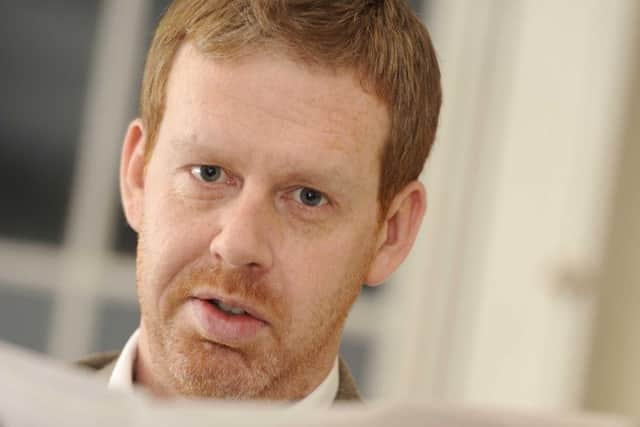Nick Freer: Edinburgh on track to become tech hub
This article contains affiliate links. We may earn a small commission on items purchased through this article, but that does not affect our editorial judgement.


A young tech chief executive I know talks about the importance of the three Ps being integral to a city’s startup environment – product, people and place. So it you want your tech companies to scale, you need a winning product, the best people you can bring together and the right place to scale it all from.
In Edinburgh, increasingly the stars are aligning in a way that suggests the city is on its way to becoming a bona fide tech hub right up there with some of the best. OK, we’re never going to be Silicon Valley but no other city could realistically aim to emulate the standard bearer for all things tech so we shouldn’t feel too put out. What’s more realistic is to go up against the Berlins, Stockholms and Amsterdams of the startup world – and given their northern European proximity, on the face of it that’s a helluva enough competition to deal with without trying to hold a candle up to the golden bear of northern California.
Advertisement
Hide AdAdvertisement
Hide AdThe good news is that great tech cities can co-exist across Europe, not least because they evolve individual characteristics that mark them out from other metropolises meaning they are not competing square on with one another – thankfully Europe’s startup centres do not resemble ancient Greece’s network of warring city states.


As Europe’s premier financial centre, it’s no surprise that London has become pre-eminent in Fintech and Amsterdam has a growing reputation for hi-tech hardware. Amsterdam is an interesting one as they seem to be getting a lot of things right at the moment, backed by favourable tax and visa systems that have convinced tech wunderkinds Uber and Netflix to relocate their European headquarters there.
While Booking.com and TomTom were the trailblazers for the startup scene in the Netherlands, most observers credit a business gathering that first took place in Amsterdam in 2006 as a watershed moment for the city’s startup credentials. In that year, leading international tech news outlet The Next Web chose to stage its first European conference in Amsterdam. It was a Dutch masterstroke, putting an international spotlight on north Holland that has only intensified since.
I’ve been lucky enough to be on its fringes a couple of times and am willing and agreeable to recounting most of the stories. What is reportable is that many of the world’s leading tech minds get a nasty, niggling feeling if they haven’t booked their early bird tickets, flights and hotel reservations in good time.
Returning to the Athens of the North, we have our very own tech festival beginning to make its name on the international stage. The Turing Festival, named after the father of computing Alan Turing and founded by CodeBase chief Jamie Coleman, takes place on the second last weekend of August and holds the promise of being the kind of event that can help put the spotlight on our own burgeoning tech ecosystem. Google, Facebook and Apple are some of the names that have made Turing a fixture in the corporate diary over the past few years, with Apple’s co-founder Steve Wozniak’s talk at a packed Playhouse a personal favourite moment of mine.
Turing 2015 sees Scotland’s most famous startup sons and daughters, Skyscanner and FanDuel, headline proceedings. In Gareth Williams and Lesley Eccles, Scottish tech will be putting its best foot forward for the international tech world to see. It’s important founders put something back into the local tech scene, but it’s difficult too when they have the pressures of captaining their own enterprises back at company HQ. Sharing a cab with Silicon Valley veteran Heidi Roizen during Informatics Ventures’ EIE15 investor showcase in May, Roizen offered her most important tip to tech ecosystem success – successful founders must give back, not just by being great adverts for their home tech hub but by rolling their sleeves up and helping the next generation of founders.
• Nick Freer runs the Freer Consultancy and is an adviser to Turing 2015 turingfestival.com @turingfestival